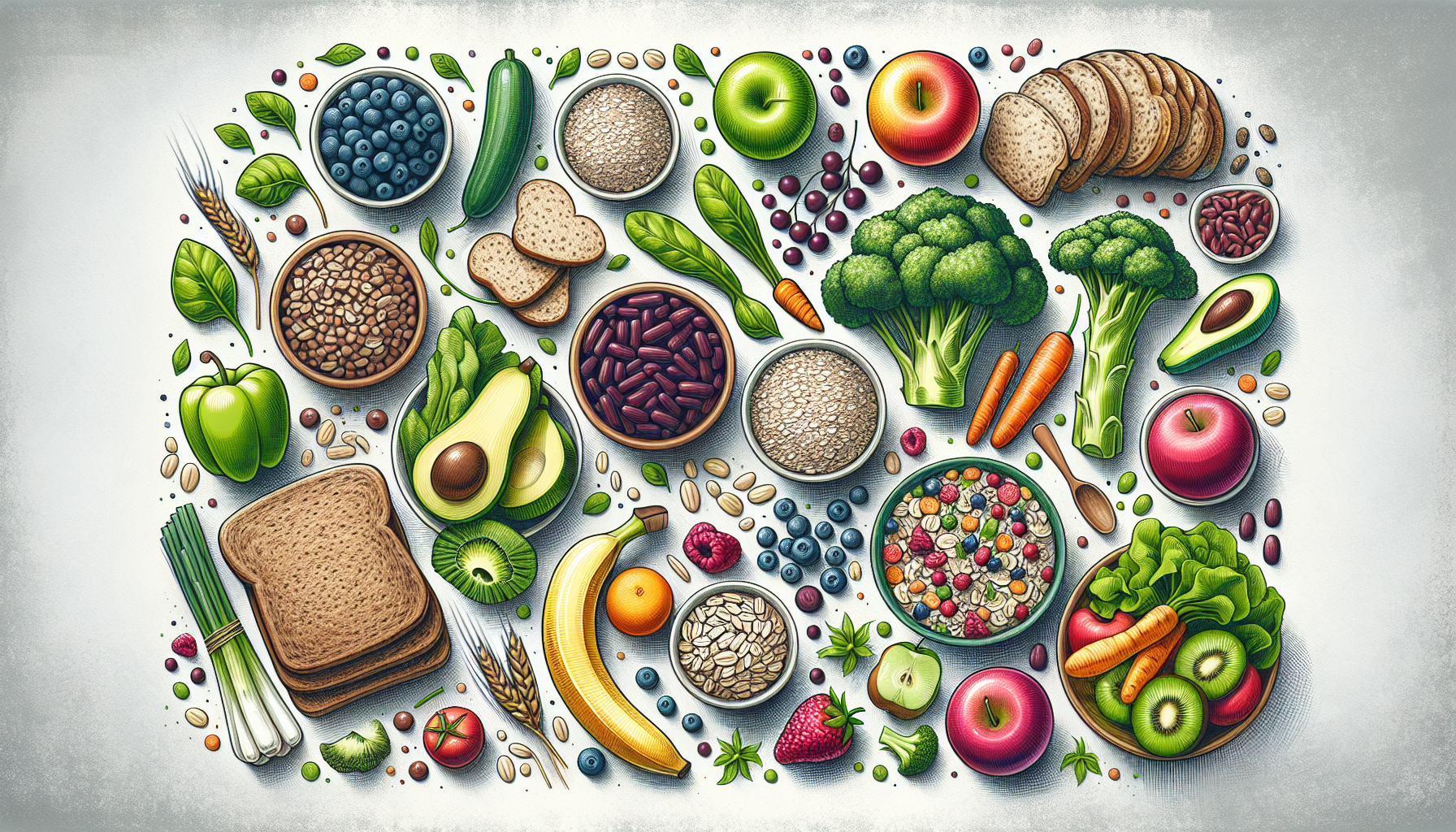Constipation is a common gastrointestinal issue that affects people of all ages. It can be not only uncomfortable but also can significantly impact one’s quality of life. Despite its prevalence, many individuals are unaware that dietary and lifestyle adjustments can often alleviate or even prevent constipation. In this article, we will explore how certain dietary strategies, hydration habits, and lifestyle modifications can promote regular bowel movements and overall digestive health.
The Role of Fiber in Digestive Health
Fiber is the cornerstone of a diet aimed at preventing and managing constipation. It is divided into two types: soluble and insoluble, both of which play a vital role in digestion. Soluble fiber dissolves in water to form a gel-like substance that helps soften stools, while insoluble fiber adds bulk to the stool and aids in its passage through the digestive tract.
Foods high in fiber include whole grains, legumes, vegetables, fruits, nuts, and seeds. Incorporating a variety of these foods into your diet can help maintain regular bowel movements. For example, starting the day with oatmeal, adding beans to your salads, and snacking on nuts or fruit can significantly increase your daily fiber intake.
However, it’s important to introduce fiber to your diet gradually and pair it with adequate hydration to prevent bloating and gas. The benefits of a plant-based diet for digestive health are well-documented, and adopting such a diet can be a great way to naturally increase fiber consumption.
Hydration and Digestive Function
Water is essential for a healthy digestive system and can help prevent and relieve constipation. It helps break down food so that your body can absorb nutrients and also softens stools, making them easier to pass.
Aim for at least 8 glasses of water a day, or more if you are active or live in a hot climate. Moreover, understanding how proper hydration enhances digestive function can offer more insights into the optimal ways to maintain fluid balance for digestive health.
Exercise and Bowel Movements
Physical activity is another key component in managing constipation. Exercise helps stimulate intestinal contractions, moving the stool through the colon more quickly. Even a daily 30-minute walk can have a positive impact on bowel regularity.
The Impact of Stress on Digestive Health
Stress can have a significant impact on the entire digestive system, including bowel regularity. It can lead to a condition known as stress-induced constipation. Managing stress through meditation, yoga, or other relaxation techniques can help alleviate constipation. For an in-depth understanding, consider exploring the evaluating the impact of stress on colon health.
Probiotics and Gut Health
Probiotics are beneficial bacteria that can improve gut health and regularity. They are found in fermented foods like yogurt, kefir, sauerkraut, and kimchi, or can be taken as supplements. Probiotics help balance the gut microbiome, which is crucial for digestion and preventing constipation.
Mindful Eating Habits
Eating quickly and not chewing food properly can lead to digestive discomfort and constipation. Mindful eating involves paying full attention to the experience of eating and drinking, both inside and outside the body. Chewing food thoroughly and eating without distractions can help the digestive system process food more efficiently.
External Resources to Consider
To further your understanding and approach to tackling constipation, here are some high-quality external resources:
- International Foundation for Gastrointestinal Disorders: Offers comprehensive information on GI disorders, including constipation, with a focus on research and education.
- American Society for Gastrointestinal Endoscopy: Provides patient information on digestive health, procedures, and preventive measures for gastrointestinal conditions.
- National Institute of Diabetes and Digestive and Kidney Diseases: Contains in-depth material on symptoms, causes, diagnosis, and treatments for digestive diseases.
Conclusion
Constipation can be more than just a minor inconvenience; it can significantly hinder daily activities and overall well-being. By incorporating high-fiber foods, staying hydrated, engaging in regular exercise, managing stress, consuming probiotics, and practicing mindful eating, you can improve your bowel regularity. Always remember that gradual changes are more sustainable and effective in the long run.
If symptoms persist or worsen, be sure to consult with a healthcare professional to rule out any underlying medical conditions. Remember that the journey to better digestive health is a holistic one, encompassing diet, lifestyle, and mental well-being.
Remember, tackling constipation is not just about dietary changes; it’s about embracing a lifestyle that supports overall digestive and bodily health. By following the strategies outlined in this article, you can take meaningful steps towards a more comfortable and active life.



